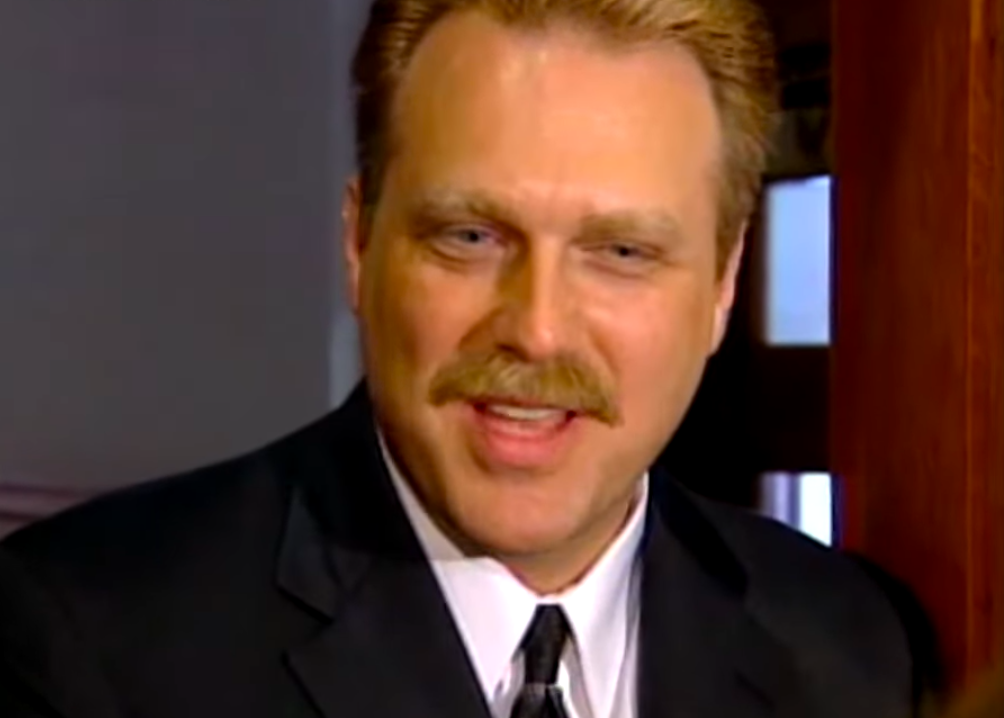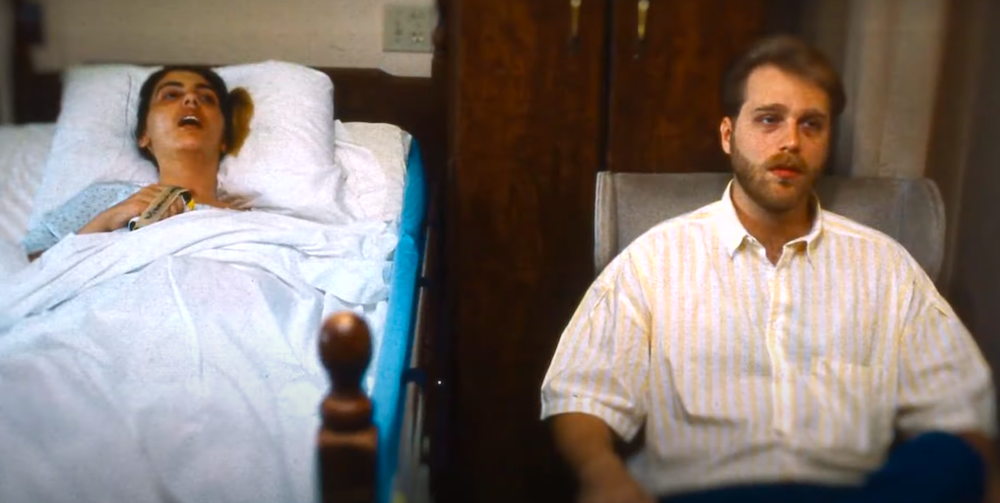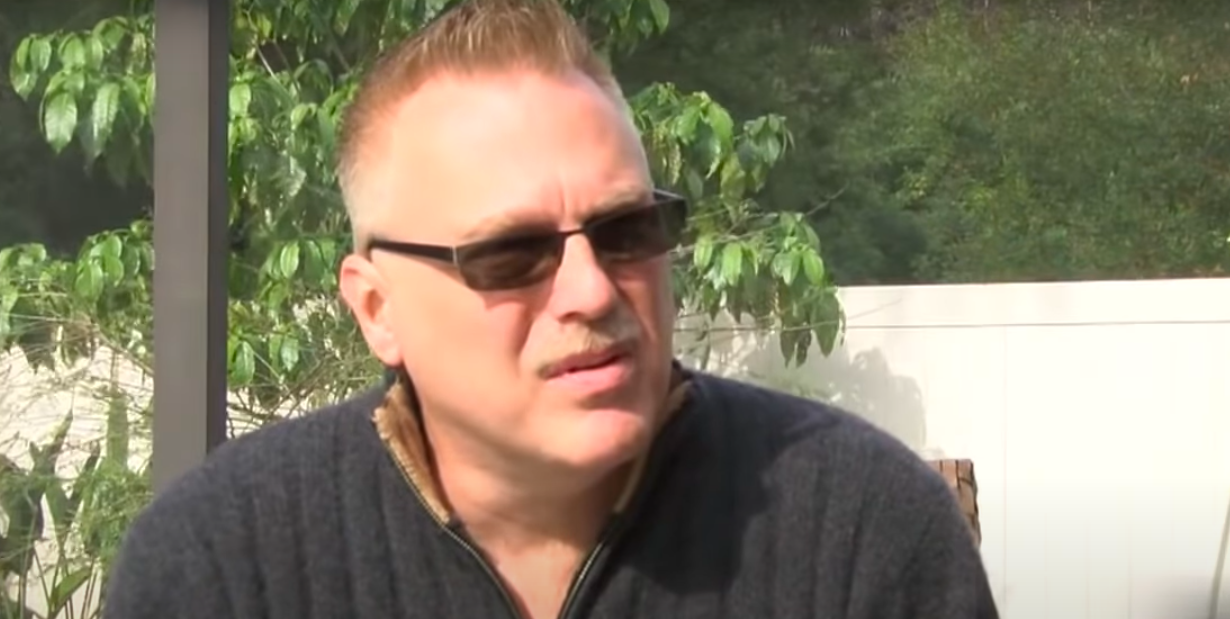The Terri Schiavo case remains one of the most debated legal and ethical issues in American history, with her husband, Michael Schiavo, at the center of it all. This case sparked nationwide discussions about end-of-life decisions, medical ethics, and patient rights. As the primary decision-maker for his wife, Michael Schiavo faced immense pressure from the public, legal authorities, and even the U.S. government.
Terri Schiavo's tragic story unfolded over a decade, involving multiple court battles and public protests. Her husband's decisions regarding her care became the focal point of intense scrutiny. The complexities of their marriage and the circumstances surrounding Terri's condition made this case a pivotal moment in the national conversation about end-of-life care.
This article delves deeply into the life of Michael Schiavo, his role as Terri's husband, and the challenges he faced during one of the most controversial legal battles in modern history. We will explore his decisions, the legal battles he endured, and the lasting impact of this case on American society.
Read also:Steve Perry Nationality Unveiling The Roots Of The Iconic Rock Singer
Table of Contents
- Biography of Michael Schiavo
- Marriage to Terri Schiavo
- Legal Battles and Decisions
- Public Reaction and Controversy
- Ethical Issues Surrounding Terri's Case
- Media Coverage and Its Impact
- The Aftermath: Life After Terri's Death
- Lessons Learned from the Terri Schiavo Case
- Family Dynamics and Conflicts
- Future Implications for End-of-Life Care
Biography of Michael Schiavo
Early Life and Background
Michael Schiavo was born in 1963 in Florida. He grew up in a modest family, developing a strong sense of responsibility from an early age. Before meeting Terri Schiavo, Michael worked as a paramedic, a job that exposed him to the complexities of medical emergencies and decision-making under pressure.
His early life experiences shaped his character and prepared him for the challenges he would face later in life. Michael's education and career choices reflect his dedication to helping others, which became evident during the Terri Schiavo case.
Personal Life
Michael Schiavo's personal life took a dramatic turn when he met Terri Schiavo in the early 1990s. Their relationship blossomed quickly, leading to their marriage in 1993. The couple enjoyed a few years of happiness before tragedy struck in 1990 when Terri suffered a cardiac arrest that left her in a persistent vegetative state.
Below is a table summarizing key details about Michael Schiavo:
| Full Name | Michael Schiavo |
|---|---|
| Date of Birth | 1963 |
| Profession | Paramedic |
| Spouse | Terri Schiavo |
| Notable Role | Legal guardian and decision-maker for Terri Schiavo |
Marriage to Terri Schiavo
The Early Years
Michael and Terri Schiavo's marriage was marked by love and mutual respect. The couple shared a passion for life and planned for a future filled with happiness. However, their lives changed dramatically when Terri suffered a cardiac arrest in 1990, leaving her in a persistent vegetative state.
Michael's role as Terri's husband evolved from a loving partner to a legal guardian responsible for making life-altering decisions on her behalf. This transition was not easy, and it tested his resolve and commitment to Terri's well-being.
Read also:Drunk Randy Travis The Story Behind The Headlines And His Journey
The Tragedy of 1990
On February 25, 1990, Terri Schiavo collapsed at home due to a cardiac arrest. She was rushed to the hospital but suffered severe brain damage due to lack of oxygen. Doctors diagnosed her as being in a persistent vegetative state, a condition that would define the rest of her life.
Michael's life changed forever that day. He became the primary advocate for Terri's care and the central figure in the legal battles that followed. His decisions were scrutinized by the media, the public, and even the U.S. government.
Legal Battles and Decisions
The Initial Legal Challenges
Michael Schiavo faced numerous legal challenges as he sought to honor Terri's wishes regarding end-of-life care. He claimed that Terri had expressed her desire not to be kept alive artificially if she were ever in a situation where she could not recover. This statement became the foundation for his legal arguments.
However, Terri's parents, Bob and Mary Schindler, disputed Michael's claims and filed multiple lawsuits to prevent the removal of Terri's feeding tube. The legal battle that ensued lasted over a decade, involving numerous appeals and interventions from state and federal courts.
The Supreme Court Decision
In 2005, the U.S. Supreme Court refused to hear the Schindlers' appeal, effectively ending the legal battle. This decision allowed Michael Schiavo to proceed with the removal of Terri's feeding tube, a move that ultimately led to her death on March 31, 2005.
The Supreme Court's decision highlighted the importance of respecting patient autonomy and the role of legal guardians in making end-of-life decisions. Michael's perseverance in this case set a precedent for future cases involving similar circumstances.
Public Reaction and Controversy
Divided Opinions
The Terri Schiavo case sparked widespread public debate, with opinions divided on whether Michael Schiavo's decisions were justified. Supporters praised his commitment to honoring Terri's wishes, while opponents accused him of hastening her death for personal gain.
- Proponents argued that Michael acted in Terri's best interest by respecting her autonomy and dignity.
- Opponents claimed that he disregarded Terri's potential for recovery and prioritized his own desires.
Media Influence
The media played a significant role in shaping public opinion during the Terri Schiavo case. Extensive coverage of the legal battles and emotional appeals from both sides created a highly charged atmosphere. Michael Schiavo's image was often portrayed in contrasting ways, depending on the media outlet's perspective.
Despite the controversy, Michael maintained his stance, emphasizing his responsibility as Terri's legal guardian to make the most ethical and compassionate decision possible.
Ethical Issues Surrounding Terri's Case
Respecting Patient Autonomy
One of the central ethical issues in the Terri Schiavo case was the principle of patient autonomy. Michael Schiavo argued that Terri had expressed her wishes regarding end-of-life care, making it his duty to honor those wishes. This principle is a cornerstone of modern medical ethics, emphasizing the importance of respecting a patient's right to self-determination.
Studies by organizations such as the American Medical Association support the notion that patients have the right to refuse or discontinue life-sustaining treatment. Michael's actions aligned with these ethical guidelines, even though they were met with significant resistance.
The Role of Guardians
The Terri Schiavo case also raised questions about the role of legal guardians in making end-of-life decisions. Michael Schiavo's position as Terri's husband and legal guardian placed him in a unique position to advocate for her rights. However, this role also subjected him to intense scrutiny and criticism.
Legal experts and bioethicists have since emphasized the importance of clear advance directives and designated proxies to prevent similar disputes in the future.
Media Coverage and Its Impact
The Role of Journalism
Media coverage of the Terri Schiavo case was extensive, with major news outlets dedicating significant resources to reporting on the legal and ethical dimensions of the story. The coverage often highlighted the emotional aspects of the case, creating a narrative that resonated with the public.
However, some critics argued that the media's focus on sensationalism detracted from the core ethical issues at stake. Despite this, the coverage brought attention to important questions about end-of-life care and patient rights.
Public Awareness
The Terri Schiavo case increased public awareness about the importance of advance directives and healthcare proxies. Many individuals and families were prompted to have difficult but necessary conversations about their end-of-life preferences.
According to a study by the National Institute of Health, the case led to a significant increase in the number of people creating advance directives, underscoring its lasting impact on American society.
The Aftermath: Life After Terri's Death
Michael Schiavo's Life Post-Case
After Terri's death, Michael Schiavo continued to advocate for patient rights and end-of-life care. He established the Terri Schiavo Life & Hope Network, an organization dedicated to supporting families facing similar challenges.
Michael's work with the network reflects his commitment to ensuring that no family has to endure the same level of conflict and uncertainty that he experienced. His efforts have been recognized by various organizations and have contributed to a broader understanding of end-of-life issues.
Legacy and Impact
The legacy of the Terri Schiavo case extends beyond Michael Schiavo's personal experiences. It has influenced legislation, public policy, and medical practices related to end-of-life care. The case remains a critical reference point in discussions about patient autonomy, family dynamics, and ethical decision-making.
Lessons Learned from the Terri Schiavo Case
The Importance of Advance Directives
One of the most important lessons from the Terri Schiavo case is the critical importance of advance directives. These legal documents allow individuals to express their preferences regarding medical treatment in the event they become incapacitated.
According to the National Institutes of Health, the case prompted a significant increase in the use of advance directives, highlighting their role in preventing disputes and ensuring that patient wishes are respected.
Family Communication
The case also underscored the importance of open communication within families about end-of-life preferences. Michael Schiavo's experience demonstrates the emotional and legal challenges that can arise when such discussions are avoided or delayed.
Family Dynamics and Conflicts
Conflicting Views
The Terri Schiavo case exposed deep-seated conflicts within families regarding end-of-life decisions. Michael Schiavo's relationship with Terri's parents, Bob and Mary Schindler, was strained throughout the legal battle, with each side presenting competing narratives about Terri's wishes and best interests.
Family therapists and legal experts have since emphasized the importance of fostering open communication and mutual understanding to prevent similar conflicts in the future.
Mediation and Resolution
While mediation efforts in the Terri Schiavo case were ultimately unsuccessful, they highlighted the potential benefits of alternative dispute resolution methods in family conflicts. Future cases may benefit from early intervention and mediation to resolve differences before they escalate into prolonged legal battles.
Future Implications for End-of-Life Care
Advancements in Medical Ethics
The Terri Schiavo case has had a lasting impact on the field of medical ethics, influencing guidelines and policies related to end-of-life care. Michael Schiavo's role as a legal guardian and advocate for Terri's rights has been studied extensively by ethicists and legal scholars.
These advancements aim to ensure that future cases are resolved with greater clarity, compassion, and respect for patient autonomy.
Public Policy and Legislation
The case also prompted legislative changes at both state and federal levels, addressing gaps in existing laws related to end-of-life care. Michael Schiavo's advocacy work has contributed to these efforts, helping to shape policies that prioritize patient rights and family involvement.
Conclusion
The Terri Schiavo case remains one of the most significant legal and ethical dilemmas in modern history, with Michael Schiavo at its


